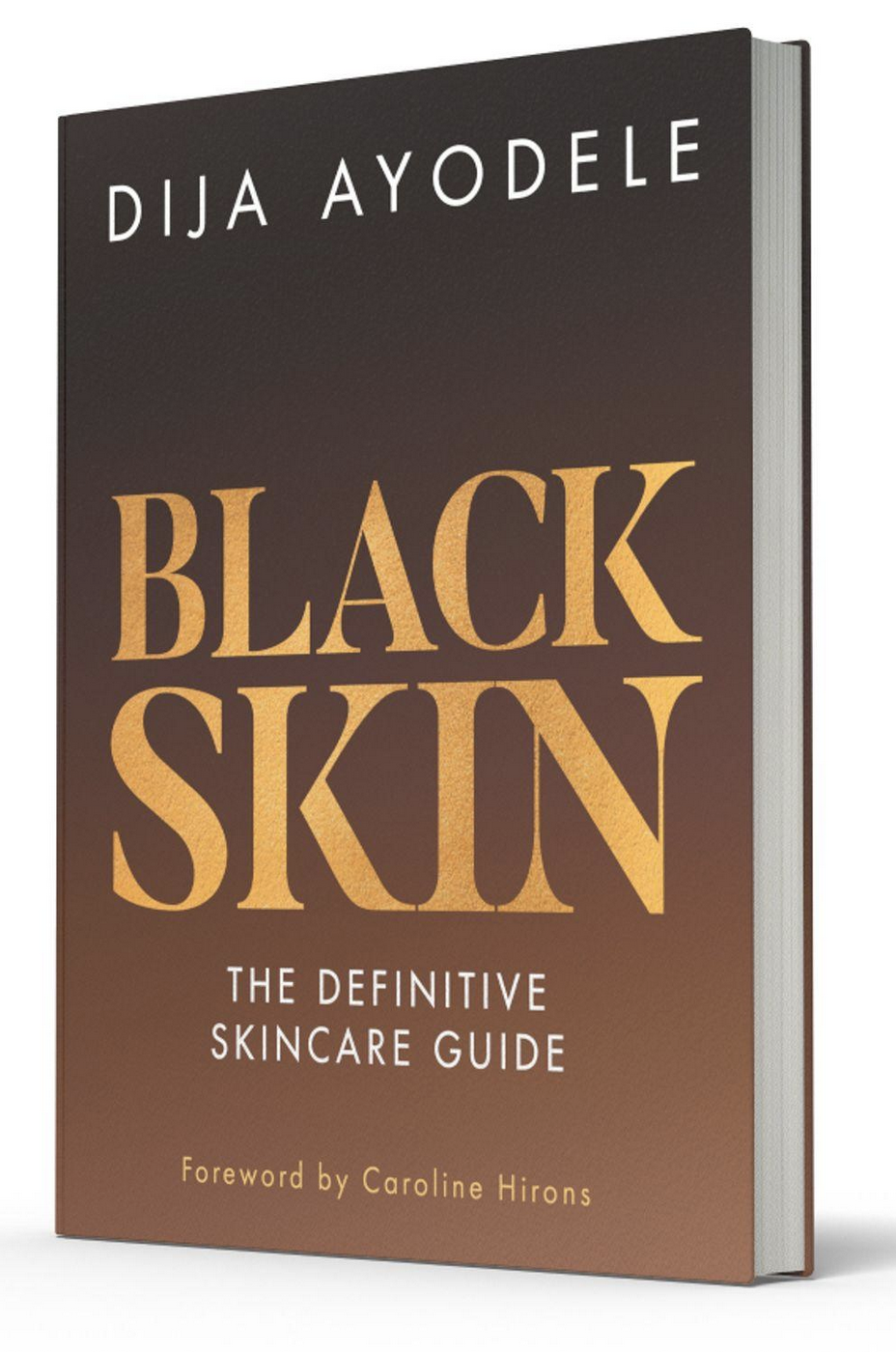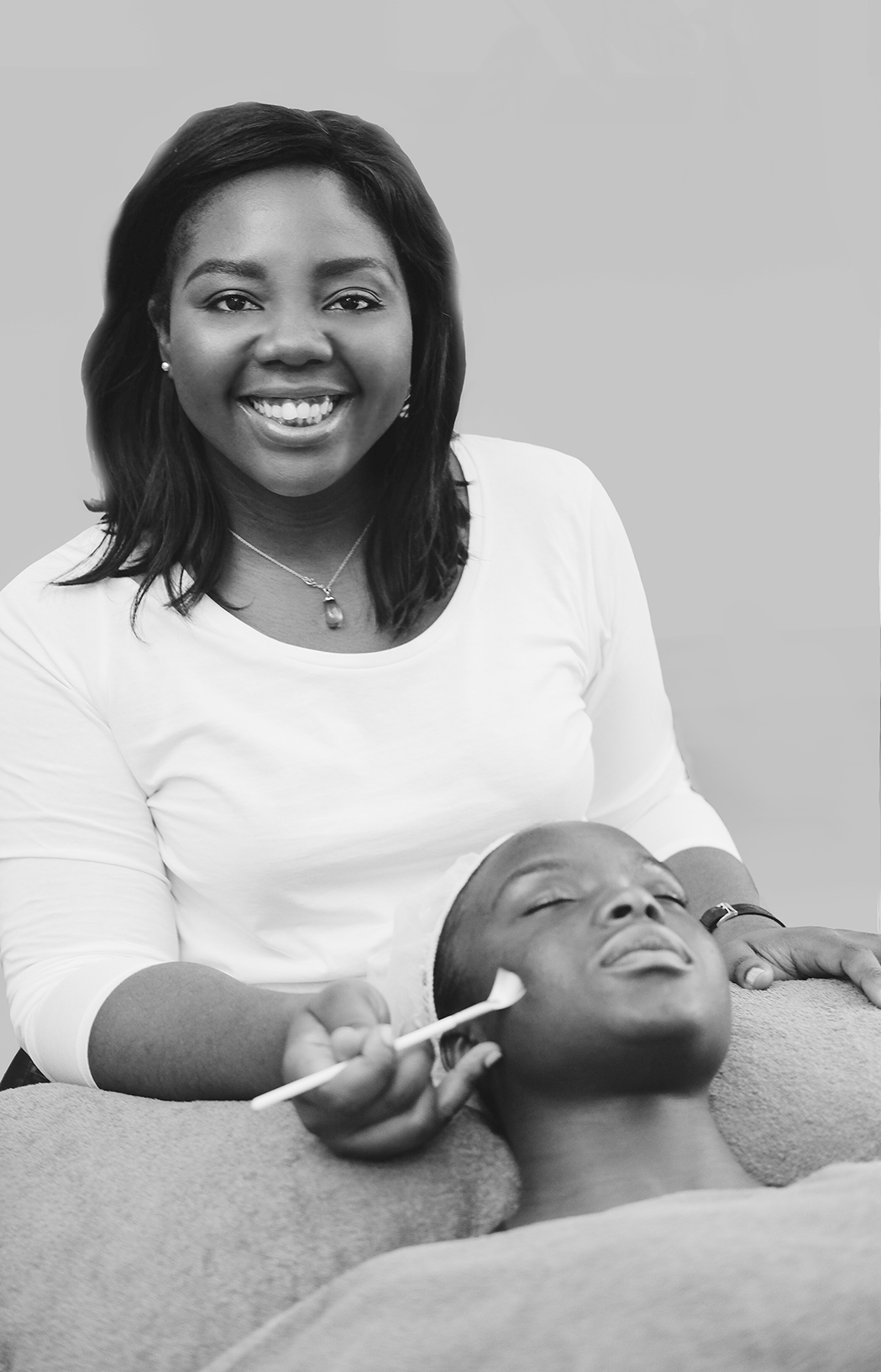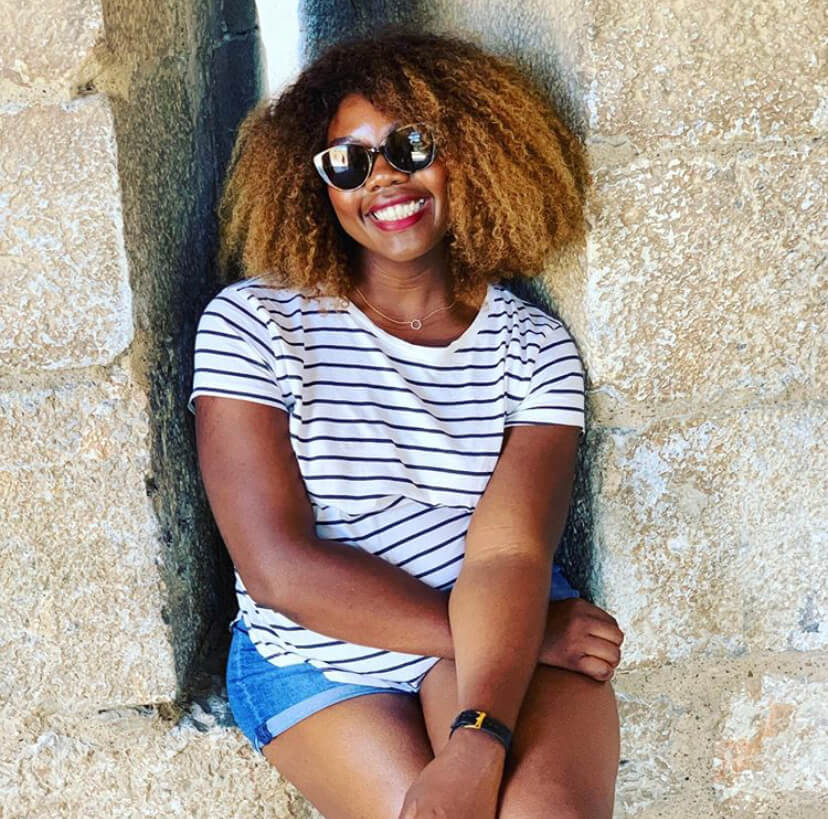Melan Magazine spoke exclusively to Dija Ayodele, founder of West Room Aesthetics, skincare guru and now author, ahead of the launch of her debut book: Black Skin: The Definitive Skincare Guide.

Dija Ayodele is a leading voice within the beauty landscape, known for her passion for championing the inclusion of Black skin awareness within the industry. Her skincare clinic, West Room Aesthetics is a mecca for Black women seeking advice and treatments for their problem skin, usually unable to find solutions in mainstream spaces.
“We need to be present”! Dija Ayodele on diversity in the beauty industry
With the launch of her debut book, Black Skin: The Definitive Skincare Guide, Dija is making her unique brand of support for Black skin available to a wider audience. Her book promises to be a comprehensive guide for Black women, a trusted source to help them care for their skin.
Black Skin: The Definitive Skincare Guide also provides social and historical insights into beauty and explores the concept of Blackness within the industry. Dija shares her expert tips and tricks, from the best ingredients for Black women to look out for, to how to deal with the most common complaints affecting darker skin tones such as hyperpigmentation and keloid scarring.

Ahead of the busy promotional tour of her book, we caught up with Dija and took the opportunity to ask her about the book, her thoughts on whether there has been progress in the beauty industry since the ‘black squares’ and what we should all be doing to enjoy healthy skin.
Read the interview…
What were your most surprising discoveries while doing the research for this book?
I was really taken aback by the theories (dating back to the Old Testament) of how the colour black and by extension Black people came to be seen as inferior and less deserving and by extension Black skin and features came to be seen as ugly, firstly by white people and then by Black people themselves, especially in the diaspora. We still live with some of these legacies now so it was interesting to see the beginnings.
It was also surprisingly challenging to distill all my years of experience and knowledge into one book. The temptation is to write about everything you know, but you always have to ask yourself ‘does the average reader need to know this level of detail?’ Most people don’t, so finding a way to make it both detailed and simple was a feat.
Your book covers topics on social and historical insights into beauty and the concept of Blackness. What do you want readers to take away from this narrative in your book?
The main take away from this particular section of the book is that we are beautiful; it’s in the fine print of our births and we have ownership and agency of our beauty. Historical events such as slavery challenged this, but for the younger generation of Black boys and girls coming up, it’s important that we embed this message of self-worth. We can only do that if we are aware of our history in this space.

With a seat on the expert board for the British Association of Beauty Therapy & Cosmetology you are in pole position to influence the industry toward a more inclusive image. In your view, what is the industry still not getting right with regard to Black skin care?
I think the industry talks the talk, but sometimes is unable to walk the walk, when they realise the true financial cost of delivering diversity and equity. For a long time, the beauty industry has been propped upon only serving the white market, so to turn that around is an expensive process and it cannot be halfhearted. This is the bit that I think is being missed. Diversity is not free! Fundamentally, diversity costs money; to educate teams about diversity will cost a brand money, to test products on a wider pool that includes darker skin tones will cost money, to have more Black models will cost money, to hire in a copy writer who understands the nuances in the way an editorial piece should be structured so that Black people are included in the narrative costs money. I could go on about how much this all costs, but you get the picture.
Dija Ayodele’s Black Skin Directory for Women of Colour
However, I also feel that we have to engage with the industry. I hesitate to say the ‘Black community’ because we are not a monolith, but for those of us interested in the beauty industry and want to see change, I sometimes see a lack of engagement on our part and that can be frustrating because it doesn’t always create an environment in which understanding and spending can occur.
And what positive changes have you seen, if any, following last summer’s ‘black squares’ and pledges?
I see the industry trying to listen more and find ways to be more inclusive. To this end, it’s great to see more people of colour being brought in as consultants/advisors and even hired into permanent roles and senior roles at that. But I also see an industry controlled by budgets and as much as they want to honour black square pledges, their hands are sometimes tied because being diverse is a cost. Diversity is an investment and fundamentally, brands need to know that they have a decent return on investment before they will commit to a spend on diversity. If that ROI isn’t clear, then diversity pledges fall by the wayside.
It’s also important to note that true diversity and seeing the fruits of this investments takes time, it’s not something that will be seen in a year or two. There are some brands who on the surface don’t seem to have done much, but are diligently working behind the scenes to embed change and there are others who made a lot of noise and when all is said and done, that black square has long been forgotten.

What are your three tips to have and maintain good, clear skin?
- See a skin health expert for a bespoke consultation to ensure your skincare is right for you. This saves you time, money and stress from trying different products or following poor advice online.
- Follow a simple but consistent twice daily skincare routine.
- Apply sunscreen, sun damage is one of the biggest causes of premature ageing regardless of skin colour.
Eight top tips for healthy, glowing skin during winter by Dija Ayodele
Are expensive creams and potions the ONLY way to good skin or can we also get good results with drug store skin care brands?
No, not at all. Healthy skin is a mix of many different factors – genetics, environment, lifestyle and then your skincare products. There are some category of products like your treatment serums that address your core skincare needs – be it texture or clarity – where it pays to spend top dollar, especially with a more mature or compromised skin type where you may need higher actives and potency in your product. However, with products such as moisturisers and sunscreens, drug store brands can have great options that don’t break the bank.
What are the most common skin issues Black women come to you with at your practice?
The most common issues are concerns about hyperpigmentation, general skin discolouration, acne and managing mature skin. This keeps me very busy!
And finally, what would you tell your younger self if you could chat with 12-year-old Dija today?
Don’t be so concerned about what other people are doing and their opinion of you – stay in your lane, continue to do the most and work hard for your own personal applause.
Black Skin: The Definitive Skincare Guide is published on 25 November 2021.
Buy it here.












